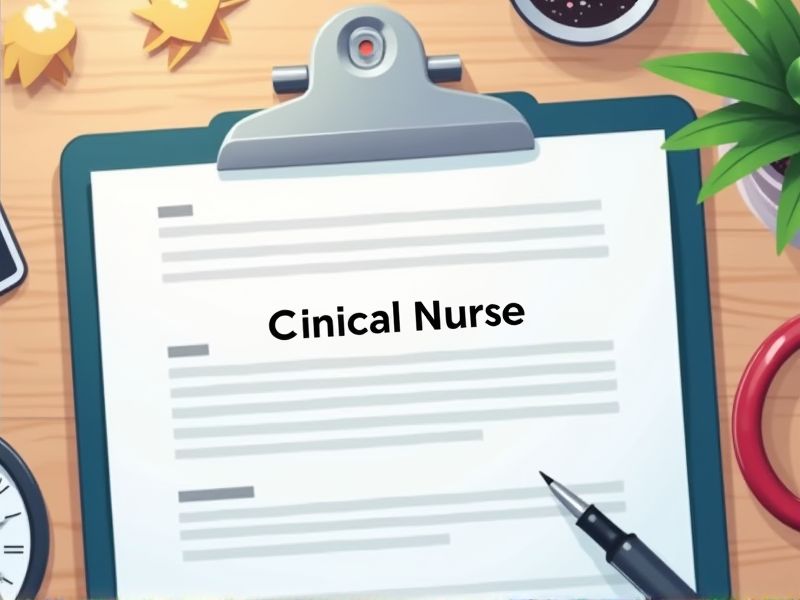
Clinical Nurse Specialists (CNS) play a crucial role in improving patient outcomes by providing expert clinical guidance and leadership within healthcare settings. Certifications for CNS ensure that they possess advanced knowledge and skills necessary to navigate complex patient care scenarios effectively. Obtaining specific certifications not only enhances credibility but also aligns with regulatory standards and institutional requirements. Here are some significant certifications essential for a Clinical Nurse Specialist.
Certified Clinical Nurse Specialist (CCNS)
The requirement for a Certified Clinical Nurse Specialist (CCNS) arises from the need to validate advanced clinical competencies in the rapidly evolving healthcare landscape. Specialized certification ensures that Clinical Nurse Specialists possess the necessary expertise to perform complex assessments and interventions. Hospitals and healthcare systems often mandate certification to maintain high standards of patient care and to meet accreditation requirements. The credential also empowers healthcare professionals to take on leadership roles, contributing to improved patient outcomes and system efficiencies.
Advanced Cardiac Life Support (ACLS)
The need for Advanced Cardiac Life Support (ACLS) for Clinical Nurse Specialists arises from the high-stakes nature of cardiac emergencies requiring precise and immediate intervention. With ACLS training, these specialists enhance their proficiency in recognizing and responding to life-threatening cardiovascular conditions, ensuring better patient outcomes. Clinical Nurse Specialists play a crucial role in educating and leading healthcare teams; ACLS certification equips them with the necessary skills to fulfill this role effectively. This training aligns with their broader responsibility of improving clinical practices and advancing patient care standards in various healthcare settings.
Basic Life Support (BLS)
Basic Life Support (BLS) is needed for Clinical Nurse Specialists to ensure they can respond effectively during life-threatening medical emergencies. Mastery of BLS enables nurses to perform crucial interventions like CPR, increasing patient survival rates. Being trained in BLS allows them to lead and guide other healthcare staff during critical situations. This certification strengthens the overall quality of patient care and safety in clinical settings.
Pediatric Advanced Life Support (PALS)
Clinical Nurse Specialists in pediatrics require Pediatric Advanced Life Support (PALS) to effectively manage critical emergencies, improving patient outcomes through standardized life-saving protocols. PALS training equips them with the necessary skills to recognize and intervene in pediatric cardiac and respiratory emergencies. Mastery of PALS fosters enhanced communication and coordination within multidisciplinary teams during pediatric incidents. Possession of PALS certification aligns with institutional requirements, ensuring that Clinical Nurse Specialists can perform to the highest standards of care.
Certified Case Manager (CCM)
A Certified Case Manager (CCM) provides specialized coordination of care, ensuring that Clinical Nurse Specialists (CNS) can focus more on patient-specific clinical tasks rather than administrative duties. The expertise of a CCM in resource management leads to cost-effective care, directly benefiting institutions with budget constraints and improving patient outcomes. With their knowledge of interprofessional collaboration, CCMs effectively bridge the communication gap between various healthcare providers, enhancing the overall quality of care. Their role in setting realistic patient care goals aligns with the clinical insights provided by Clinical Nurse Specialists, leading to more tailored and effective treatment plans.
Certified in Infection Control (CIC)
Clinical Nurse Specialists play a key role in patient care; obtaining CIC certification ensures they possess advanced knowledge in preventing and controlling infections. This certification fosters a standardized approach, enhancing patient safety in healthcare settings. Having personnel with CIC on staff can also reduce the risk of healthcare-associated infections, leading to better health outcomes. Employers often prefer or require CIC certification, which can increase career opportunities and advancement for nurses.
Oncology Certified Nurse (OCN)
An Oncology Certified Nurse (OCN) brings specialized knowledge in cancer care, enhancing the capabilities of the Clinical Nurse Specialist in oncology-focused settings. The certification ensures that nurses are up-to-date with the latest cancer treatment protocols and patient care strategies, crucial for effective clinical outcomes. Having an OCN credential improves patient education and support by ensuring nurses can deliver informed guidance based on the latest evidence-based practices. Clinical Nurse Specialists benefit from collaborating with OCNs as it facilitates a multidisciplinary approach to developing comprehensive care plans tailored for complex cancer cases.
Certified Diabetes Educator (CDE)
A Certified Diabetes Educator provides specialized knowledge that enhances clinical nurse specialists' ability to manage complex diabetes cases. Having a CDE on the team leads to improved patient outcomes through educational strategies tailored to individual needs. The presence of a CDE also supports clinical nurse specialists by offering up-to-date diabetes management practices, reducing potential complications. By collaborating with a CDE, clinical nurse specialists can focus on delivering comprehensive care, integrating diabetes education seamlessly into overall treatment plans.
Wound Care Certified (CWOCN)
Clinical Nurse Specialists specializing in wound care face complex wounds and need advanced skills for effective treatment, leading to the necessity of Wound Care Certified status (CWOCN). CWOCN certification validates specialized knowledge, enhancing patient outcomes and credibility among healthcare professionals. This certification incorporates evidence-based practices, aligning with medical advancements and ensuring up-to-date patient care. Skilled and certified specialists contribute to reduced healthcare costs by optimizing healing times and minimizing complications.
Gerontological Nursing Certification (GNC)
Clinical Nurse Specialists in gerontological nursing equip themselves with specialized expertise to address the complex needs of the elderly population, given the growing demographic trend towards an aging society. The certification denotes a validated level of skill and knowledge, which promotes higher standards of care for older adults. Advanced certification can lead to enhanced job opportunities and career advancements in settings focused on geriatric care. Certified professionals are also more likely to influence healthcare policies and practices aimed at improving elder care through evidence-based interventions.
Summary
You, as a Clinical Nurse Specialist (CNS), can expect enhanced clinical expertise when you obtain additional certifications. The certifications equip you with specialized skills that lead to improved patient care outcomes. Your enhanced credibility from the certifications may open doors for leadership roles and advance your career. As you gain recognition for your expertise, your influence in shaping healthcare policies and practices often increases.
